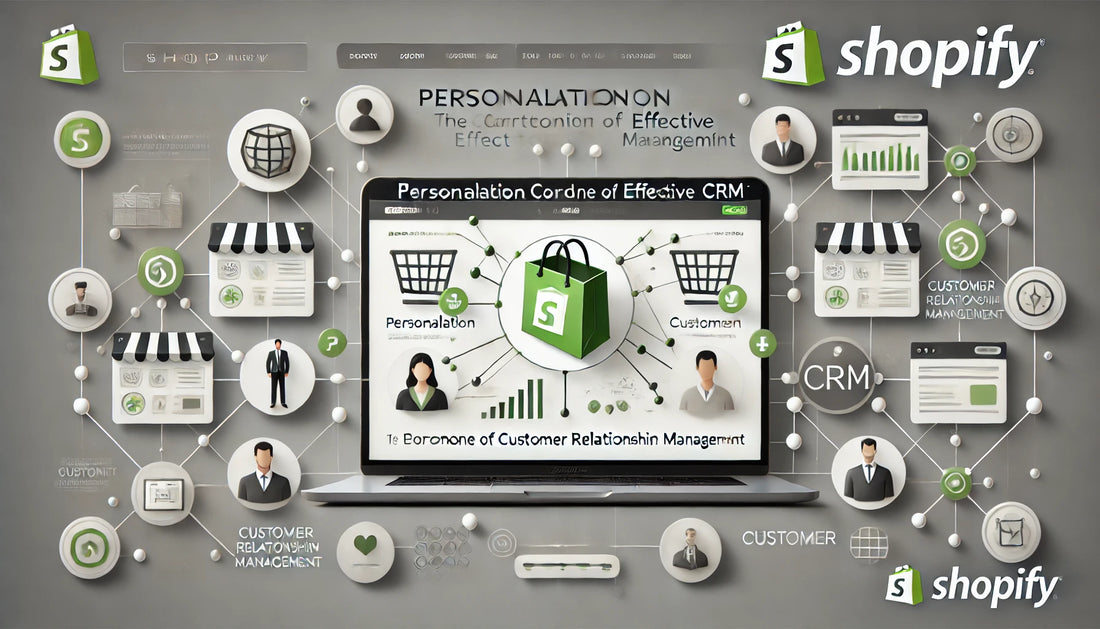The concept of personalization, a cornerstone of effective Customer Relationship Management (CRM), has been identified as critical in fostering long-term customer loyalty and profitability. Through the strategic use of data to customize interactions, personalization enables businesses to meet individual customer needs and expectations. This discussion analyzes the role of personalization as a CRM factor beyond customer satisfaction and evaluates how it can be utilized to maintain a competitive advantage. Specific applications and examples from commerce software are included to illustrate this analysis.
Personalization in CRM
Personalization refers to the process of tailoring customer experiences to individual preferences, behaviors, and needs, creating meaningful and engaging interactions. Defined by Salesforce (2023) as the use of data to deliver targeted messages based on customer demographics, interests, and purchasing behavior, personalization allows businesses to create unique experiences. For example, websites can adjust homepage content to reflect a user’s browsing history, while personalized product recommendations can drive increased engagement and sales.
Research conducted by McKinsey (2023) emphasizes the tangible benefits of personalization, which include a reduction in customer acquisition costs by up to 50%, increased revenues by 5% to 15%, and improved marketing return on investment (ROI) by 10% to 30%. These outcomes demonstrate the critical role personalization plays in driving both customer loyalty and business profitability.
Applications of Personalization
Personalization is implemented across various customer touchpoints, allowing businesses to enhance interactions through tailored strategies:
-
Websites: Adjusting layouts, content, and product recommendations based on user activity and preferences.
-
Emails: Designing campaigns with personalized subject lines, offers, and dynamic content that respond to recipient behavior.
-
Mobile Applications: Delivering relevant notifications and features based on real-time location and behavior analysis.
-
Online Advertising: Displaying advertisements targeted to individual customer interests and purchase history.
-
Customer Support: Using data from previous interactions to deliver support in a preferred language and context.
Commerce software platforms, such as Shopify, integrate personalization by offering merchants tools to provide region-specific currency, language options, and product recommendations. These localized strategies allow businesses to address international customer expectations effectively, fostering trust and loyalty across diverse markets.
The Importance of Personalization
Modern consumers increasingly demand personalized interactions, as noted by Salesforce (2023), with 64% of customers expecting engagement based on their past interactions and 71% anticipating real-time responses. Personalization meets these expectations by enabling businesses to:
-
Build Emotional Connections: Demonstrate customer understanding and value through tailored interactions, thereby enhancing loyalty.
-
Improve Conversion Rates: Offer recommendations and promotions that align with customer needs, increasing the likelihood of purchases.
-
Drive Long-Term Engagement: Maintain customer interest over time through consistent and meaningful personalized experiences.
However, McKinsey (2023) cautions that businesses must balance personalization with ethical data collection practices to address privacy concerns. Transparency and accountability are necessary to maintain customer trust while delivering personalized value.
Personalization as a Competitive Advantage
Personalization provides a competitive edge by differentiating customer experiences in the marketplace. In consulting with Shopify merchants, strategies such as international customer segmentation and localized shopping experiences are emphasized. For example, merchants entering new markets are encouraged to adopt region-specific pricing models, language options, and promotions that resonate with local audiences. Such practices ensure that customers feel understood and valued, leading to stronger brand loyalty.
The effectiveness of personalization tools, as highlighted by Salesforce (2023), underscores their role in competitive differentiation. Platforms that segment customers based on behavior, demographics, and preferences allow for the delivery of highly relevant content. Features such as dynamic pricing, customized dashboards, and adaptive user interfaces further enhance customer engagement, contributing to long-term profitability.
As McKinsey (2023) notes, companies that implement advanced personalization strategies achieve faster growth, higher retention rates, and stronger customer relationships. These results demonstrate the importance of investing in data-driven personalization to secure a sustainable competitive advantage in today’s dynamic business environment.
References
Kotler, P., & Keller, K. L. (2022). Marketing management (16th Canadian ed.). Pearson Education Canada. ISBN-13: 978013734416.
McKinsey & Company. (2023, May 30). What is personalization? Retrieved December 13, 2024, from https://www.mckinsey.com/featured-insights/mckinsey-explainers/what-is-personalization.
Salesforce. (2023). What is marketing personalization? Retrieved December 13, 2024, from https://www.salesforce.com/ca/marketing/personalization/guide/.




